
7 Solid Reasons to Choose Hydraulic Oil Cylinders for Your Industrial Needs
 In the world of industrial applications, the choice of equipment can significantly impact efficiency and productivity. Among the myriad of options available, Hydraulic Oil Cylinders stand out as a preferred choice for many businesses due to their outstanding performance and reliability. These powerful devices are essential for converting fluid power into linear motion, making them ideal for a wide range of applications, from construction and manufacturing to automotive and aerospace industries. As industries continue to evolve, the demand for versatile and robust solutions becomes increasingly important.
In the world of industrial applications, the choice of equipment can significantly impact efficiency and productivity. Among the myriad of options available, Hydraulic Oil Cylinders stand out as a preferred choice for many businesses due to their outstanding performance and reliability. These powerful devices are essential for converting fluid power into linear motion, making them ideal for a wide range of applications, from construction and manufacturing to automotive and aerospace industries. As industries continue to evolve, the demand for versatile and robust solutions becomes increasingly important.
This ultimate guide outlines seven solid reasons to choose Hydraulic Oil Cylinders for your industrial needs, highlighting their benefits, functionality, and the value they bring to operations. Whether you're looking to enhance existing systems or invest in new machinery, understanding the advantages of Hydraulic Oil Cylinders can ultimately lead to more informed decisions for your operations.
Advantages of Hydraulic Oil Cylinders in Industrial Applications
Hydraulic oil cylinders have emerged as a vital component in various industrial applications due to their robust and efficient performance. One of the primary advantages of using hydraulic cylinders is their ability to provide significant force in a compact size, making them ideal for projects that require powerful lifting and precise movement in confined spaces. This compactness, paired with their high load capabilities, enhances productivity in sectors such as manufacturing, construction, and oil & gas.
Moreover, the hydraulic market is experiencing substantial growth, with projections indicating revenues increasing from $14.3 billion in 2021 to an expected $18.3 billion by 2027. The positive outlook reflects a broader trend in the fluid power industry, driven by advancements in technology and rising demand across various sectors. As industries increasingly adopt hydraulic solutions to enhance operational efficiency, the benefits of hydraulic oil cylinders—such as durability, reliability, and ease of maintenance—become even more pronounced, solidifying their position as a preferred choice for industrial needs.

Durability and Reliability: Why Hydraulic Oil Cylinders Stand Out
When it comes to selecting equipment for industrial applications, durability and reliability are paramount. Hydraulic oil cylinders excel in these areas, providing a solution that can withstand harsh operating conditions while maintaining peak performance. Their robust design ensures they can handle heavy loads and resist wear over time, making them an ideal choice for industries ranging from construction to manufacturing. This resilience not only minimizes downtime but also reduces maintenance costs, allowing businesses to operate more efficiently.
Furthermore, the reliability of hydraulic oil cylinders is enhanced by their efficient operation. These cylinders are engineered to perform consistently under pressure, delivering smooth and powerful motion control. Their ability to function effectively in high-pressure environments helps prevent equipment failure, safeguarding both the machinery and the workforce. This reliability instills confidence in operators, knowing that their hydraulic systems will respond as expected, even in demanding situations. Ultimately, the durability and reliability of hydraulic oil cylinders set them apart, ensuring that they remain a preferred choice in various industrial applications.
Enhanced Efficiency: Maximizing Performance with Hydraulic Systems
Hydraulic systems are essential in maximizing performance across various industrial applications. Studies have shown that hydraulic oil cylinders can enhance energy efficiency by up to 30%, which significantly reduces operational costs. According to a report from the International Energy Agency, industries utilizing hydraulic systems demonstrate a substantially lower energy consumption compared to those relying solely on mechanical systems. This efficiency stems from the ability of hydraulic systems to transmit large amounts of power through fluid motion, making them ideal for high-force tasks in manufacturing and construction.
Moreover, the precision offered by hydraulic oil cylinders allows for better control and faster response times. A report by the National Fluid Power Association indicates that modern hydraulic systems can achieve cycle times that are up to 40% shorter than traditional mechanical systems. This not only leads to increased productivity but also ensures that machinery operates smoothly, reducing wear and tear and preventing costly downtimes. The integration of hydraulic cylinders in operational frameworks is thus a strategic move for industries aiming for both enhanced efficiency and productivity.
Cost-Effectiveness of Using Hydraulic Oil Cylinders Over Time
When considering industrial applications, hydraulic oil cylinders stand out due to their remarkable cost-effectiveness over time. These systems not only provide efficient power transfer but also exhibit a lower operational cost compared to other mechanisms. The longevity of hydraulic cylinders, coupled with reduced maintenance requirements, ensures that investments yield significant returns, particularly in high-demand environments.
Tips for maximizing the cost-effectiveness of hydraulic oil cylinders include regular maintenance and timely fluid changes. A well-maintained hydraulic system operates at optimal efficiency, extending its lifespan while minimizing breakdowns that can incur additional costs. Additionally, investing in high-quality hydraulic fluids can enhance performance and reduce the frequency of system failures.
Another important aspect to consider is the design and compatibility of the hydraulic system. By selecting the right components and ensuring proper installation, industries can prevent premature wear and enhance the overall efficiency. This proactive approach not only lowers immediate expenses but also contributes to long-term savings in operational costs, making hydraulic oil cylinders a smart choice for industrial needs.

Versatility of Hydraulic Oil Cylinders in Various Industries
Hydraulic oil cylinders stand out for their remarkable versatility across a variety of industries, making them an essential component in modern industrial applications. According to a report by MarketsandMarkets, the hydraulic cylinder market is projected to reach $19.67 billion by 2025, fueled by the increasing adoption of automation in manufacturing processes. Industries such as construction, agriculture, and manufacturing utilize hydraulic systems due to their ability to provide high force and precision while maintaining a compact design. This adaptability allows businesses to optimize their operations, improving efficiency and productivity.
When selecting hydraulic oil cylinders, consider the specific requirements of your industry. For instance, in construction, the need for robust cylinders that can withstand harsh environmental conditions is paramount. Regular maintenance is crucial; implementing a maintenance schedule can extend the life cycle of your hydraulic systems. A simple tip: always check for hydraulic fluid quality, as contaminated fluid can lead to premature cylinder wear and system failures.
Furthermore, the versatility of hydraulic oil cylinders is evident in specialized applications such as metal forming and materials handling. A report by Allied Market Research highlights that the increasing demand for machinery and equipment equipped with hydraulic systems is driving innovation in cylinder designs. To maximize performance, ensure compatibility with your machinery, and invest in cylinders that boast advanced sealing technology to prevent leaks and enhance operational longevity.
7 Solid Reasons to Choose Hydraulic Oil Cylinders for Your Industrial Needs
| Industry | Advantages of Hydraulic Oil Cylinders | Applications | Efficiency Impact |
|---|---|---|---|
| Manufacturing | High power-to-weight ratio | Material handling, assembly lines | Increases operational speed |
| Construction | Sturdy and durable | Excavators, bulldozers | Enhances lifting capacity |
| Oil & Gas | Excellent control in harsh conditions | Drilling platforms, offshore rigs | Reduces downtime |
| Agriculture | Adaptability to different tasks | Tractors, harvesters | Maximizes productivity |
| Automotive | Precision and reliability | Car assembly lines, testing machines | Improves product quality |
| Marine | Seawater resistance | Boat lifts, cargo handling | Increases operational safety |
| Mining | Ability to work in extreme conditions | Haul trucks, drilling equipment | Enhances extraction efficiency |
Related Posts
-

Top Strategies for Enhancing Performance of Hydraulic Oil Cylinders
-
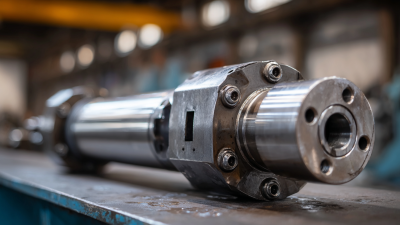
Ultimate Guide to Choosing the Best Hydraulic Oil Cylinder for Your Needs
-
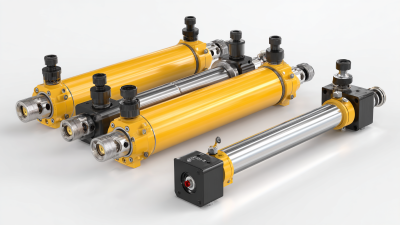
Understanding the Best Hydraulic Oil Cylinder Types for Your Needs
-
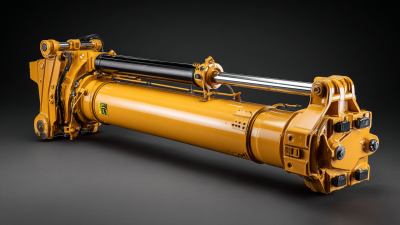
5 Reasons Why Our Best Excavator Hydraulic Cylinder Outperforms Competitors
-
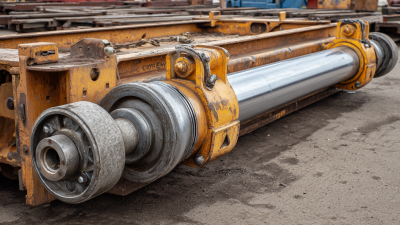
A Comprehensive Guide to Selecting the Best Hydraulic Cylinder for Your Trailer Needs
-
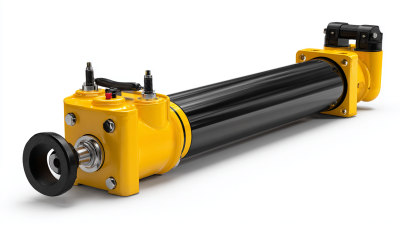
Ultimate Checklist for Choosing the Right Hydraulic Cylinder for Your Forklift
